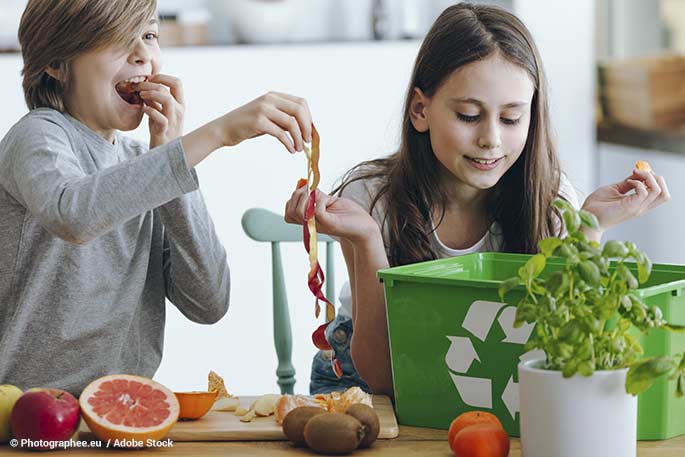
If we were going to make a list of the country’s most thoughtful consumers, kids wouldn’t be at the top of the list. While kids are often sensitive to environmental concerns, such instincts don’t always come them naturally. They need to be taught.
One area in which kids can be instructed is that of reducing food waste.
Fortunately, the steps are simple, achievable, and produce lasting results.
Describe the Problem
Often, parents or teachers who want children to develop good habits skip the simple but vital step of explaining to the children why they’re being asked to behave a certain way. Instead of sitting children down and describing the problem, they fall back on quick and simple commands, such as “Don’t waste food!” While this method will produce temporary compliance, it doesn’t bear the same results as actual internal change.
In order to help kids make good decisions on their own in the future, we should not only set certain boundaries and requirements for them to follow now; we should also describe the nature of the problem for them so that they grasp the underlying rationale.
Once they think differently, they will naturally behave differently, even after they move outside our sphere of influence.
Brainstorm Solutions
Once you’ve helped children understand the damaging nature of food waste, let them help brainstorm solutions, both large and small. This step will do more than just help them become more personally invested in food waste solutions: it will also help them become more tenacious problem solvers in the future.
When kids practice problem-solving skills at an early age — including the tenacity to keep trying when their first solution falls flat — they will be better equipped to thrive in a rapidly changing world (PBS).
If the next generation is taught not just good habits but also good problem-solving skills, they will do more than just reduce food waste.
They could be the generation to reverse the damage done by generations who have come before them.




































































































































 Three Ways to Engage Teams and Clients to Maximize Your Recycling Program Engagement
Three Ways to Engage Teams and Clients to Maximize Your Recycling Program Engagement  How to Integrate Accessibility Into Your Sustainability Planning
How to Integrate Accessibility Into Your Sustainability Planning  Why Park Benches Can Promote Workplace Well-Being
Why Park Benches Can Promote Workplace Well-Being 
